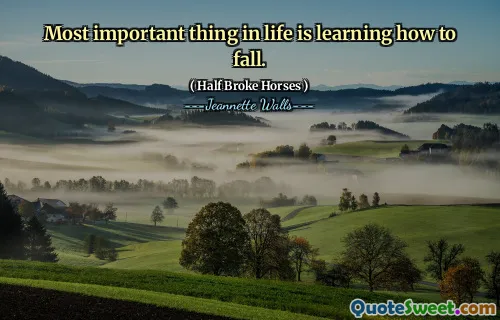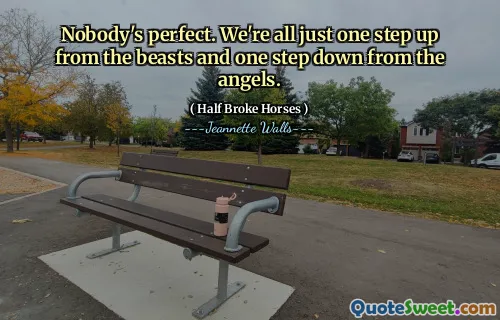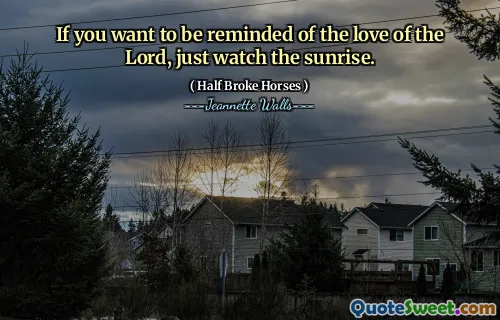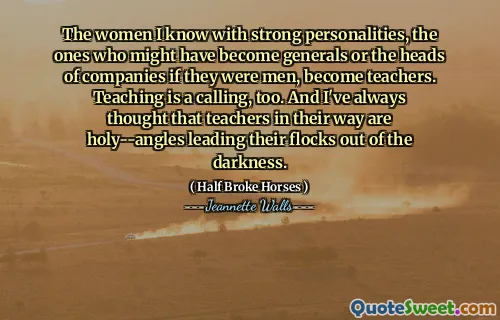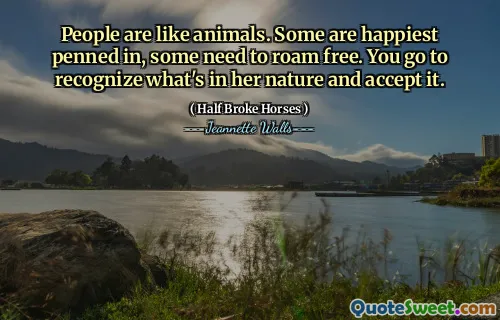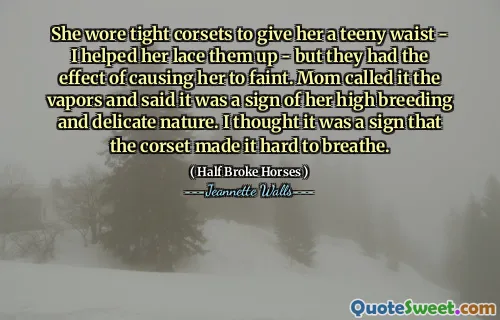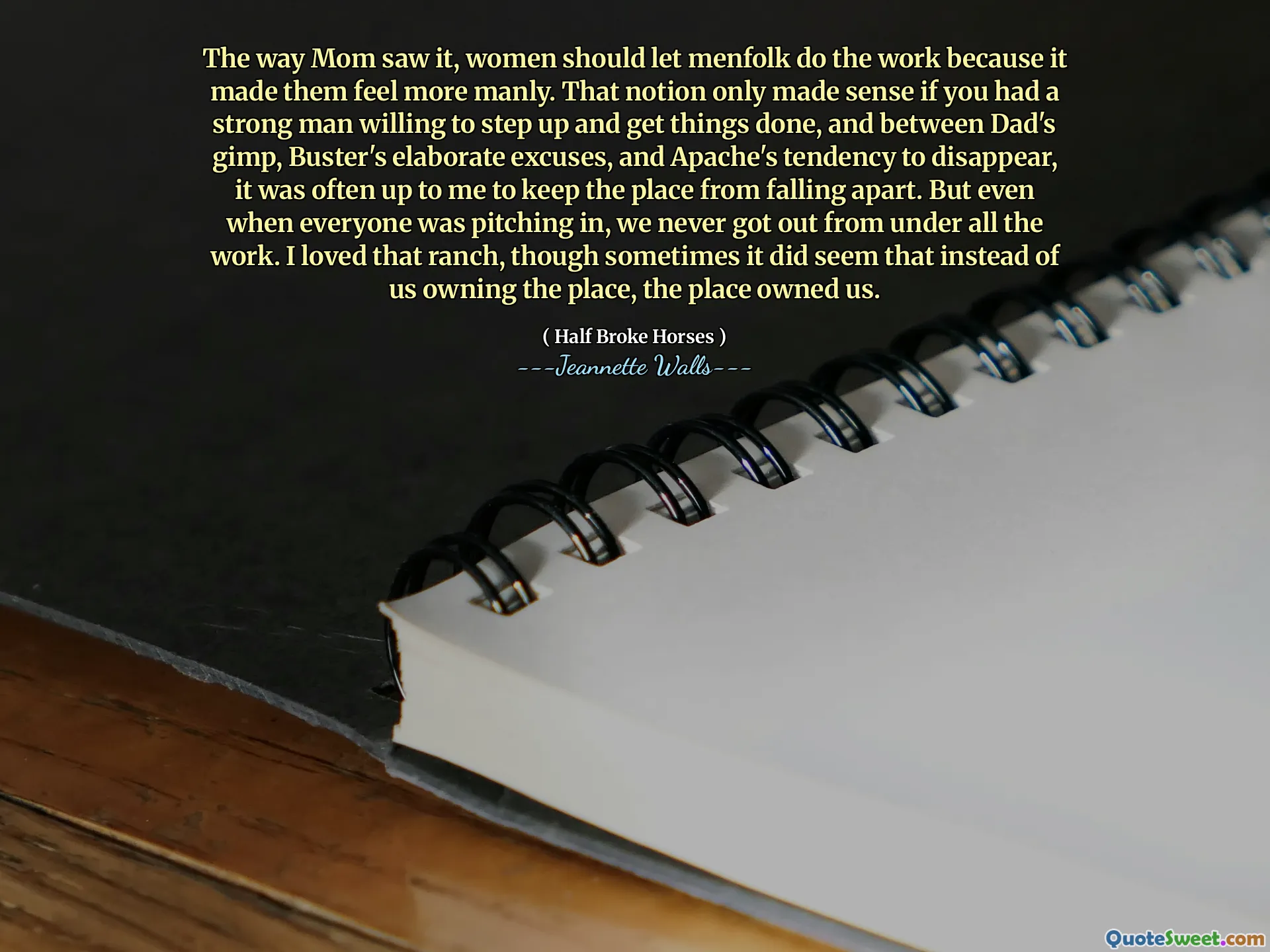
The way Mom saw it, women should let menfolk do the work because it made them feel more manly. That notion only made sense if you had a strong man willing to step up and get things done, and between Dad's gimp, Buster's elaborate excuses, and Apache's tendency to disappear, it was often up to me to keep the place from falling apart. But even when everyone was pitching in, we never got out from under all the work. I loved that ranch, though sometimes it did seem that instead of us owning the place, the place owned us.
In Jeannette Walls' "Half Broke Horses," the protagonist reflects on her mother's belief that women should allow men to take on the labor to uphold their masculinity. This perspective is complicated by the reality of her family's situation, where the men often fail to fulfill their roles due to various reasons. Consequently, the responsibility for managing the ranch frequently falls on her shoulders, highlighting the gender dynamics and expectations within her household.
Despite the challenges and the overwhelming workload, the protagonist expresses a deep affection for the ranch. There is a sense that, rather than owning the property, they are subservient to it. This duality of love for the land and the burdens it imposes illustrates the struggle between personal passion and the relentless demands of rural life. Ultimately, it portrays the complexities of familial roles and the realities of hard labor on a ranch.
